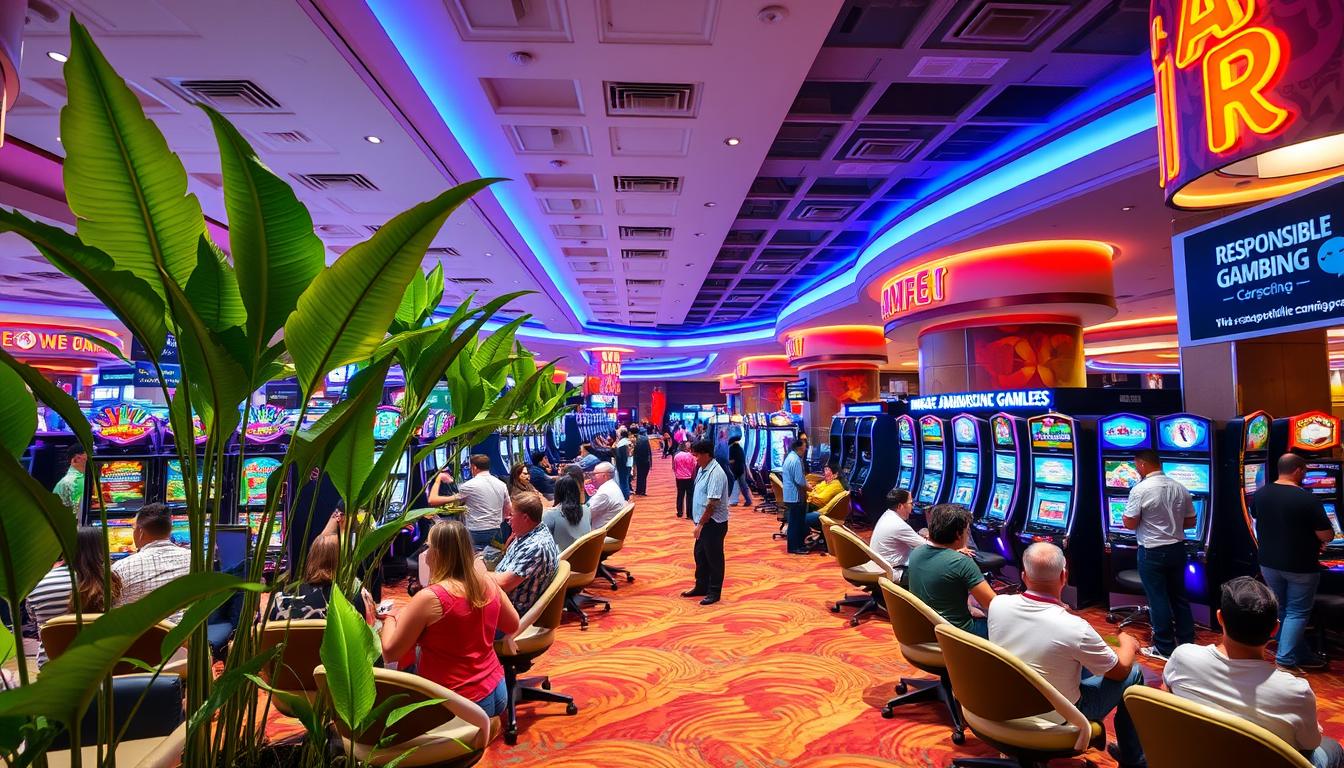As we delve into the New Zealand casino industry, it’s essential to consider the implications of stricter regulations on this sector. The ongoing evolution of public opinion on gambling highlights a growing awareness around responsible gambling practices. These developments are prompting discussions about potential changes to gambling laws, as well as the importance of casino compliance. We are witnessing a global trend that mirrors these shifts, raising the question: will our casinos thrive under tighter scrutiny? You can discover more insights on this topic in detail Abosarhad.
Understanding the context in which these regulations are being considered will guide us as we explore the current state of casinos, historical perspectives, and what the future may hold for the gambling landscape in New Zealand.
Understanding New Zealand’s Casino Landscape
When we examine the current state of casinos in New Zealand, several factors come into play. Major establishments like SkyCity dominate the landscape, drawing significant traffic and contributing to the economy. The number of gambling licenses issued reflects the enthusiasm for gambling venues across the country. Online gaming has also surged, presenting new challenges and opportunities for policy makers as we assess the economic impact of casinos.
The Current State of Casinos in New Zealand
Casinos in New Zealand operate under strict guidelines aimed at balancing entertainment with responsible gaming. SkyCity Auckland and Casino de Grosvenor stand out as leaders in providing diverse gaming options. Statistical data indicates that current casino operations generate substantial revenue, with the total gaming industry contributing millions annually to the local economy. This economic impact of casinos extends beyond walls, influencing tourism and creating job opportunities.
Historical Context and Previous Regulations
Tracing the history of casino regulations reveals a complex evolution shaped by societal concerns and economic needs. Past gambling laws reflect an ongoing dialogue about the social effects of gaming, particularly related to gambling addiction. Significant changes in legislation over the years signal efforts to regulate the industry effectively while addressing issues of harm. Understanding this historical context allows us to appreciate how New Zealand has navigated challenges within the gaming sector.
Will New Zealand’s Casino Industry Thrive Under Stricter Regulations?
The conversation around New Zealand’s casino industry is evolving, especially as we consider the potential impact of stricter regulations. While we can talk about challenges, it is equally important to explore the potential benefits of regulation as we navigate this significant shift.
Potential Benefits of Stricter Regulations
Implementing stricter regulations within the casino industry could introduce numerous benefits. For one, improved consumer protection stands out as a major advantage. By fostering an environment of responsible gambling, we can enhance accountability among casinos, reducing the risks of addiction and financial losses for vulnerable individuals.
- Increased transparency leads to better informed players.
- Enhanced measures can effectively address gambling-related harm.
- Regulations encourage casinos to adopt best practices in safety and compliance.
Examining case studies from countries like the UK and Australia, we notice that similar regulatory frameworks have contributed to positive outcomes, such as a notable decrease in gambling addiction rates. This highlights the effectiveness of stringent regulations in promoting responsible gambling.
Challenges Facing the Casino Industry
Despite these potential benefits, we acknowledge that challenges await the industry. The financial implications of new regulations could be substantial, leading to increased operational costs for casinos, potentially affecting their profitability. Industry resistance might emerge as stakeholders adapt to these changes.
- Potential pushback from casino operators concerned about losing clientele.
- Increased risks of illegal gambling activities if regulations are seen as overly stringent.
- Efforts required to ensure compliance may divert resources from enhancing customer experience.
As we analyze these challenges, it’s vital that we find a balance that protects consumers while allowing the casino industry to thrive. The outcome of these discussions and decisions will significantly shape the future landscape of gambling in New Zealand.
The Future of Gambling in New Zealand
As we look towards the future of gambling in New Zealand, it’s essential to recognize the evolving landscape shaped by new market trends and technological advancements. With the rise of online platforms, both traditional casinos and digital gaming operators are adapting their strategies to attract a broader audience. This shift is not just about convenience; it heralds a new era of casino innovation where user experience and engagement take center stage, reshaping how New Zealanders interact with gambling.
We’ve seen that public attitudes toward gambling are gradually changing, with a rising focus on responsible play and community welfare. As regulatory bodies consider implementing stricter frameworks, the casino industry may need to pivot, prioritizing player protection while promoting sustainable growth. This regulatory evolution could lead to innovative solutions as industry leaders adapt to meet the demands of today’s game enthusiasts.
In conclusion, while the future of gambling in New Zealand brings both challenges and opportunities, we are hopeful about its potential. The direction taken by casinos and regulators will significantly influence market trends and the overall health of the industry. By embracing change and fostering technological advancements, we can envision a thriving gambling ecosystem that caters to the needs of all stakeholders involved.




